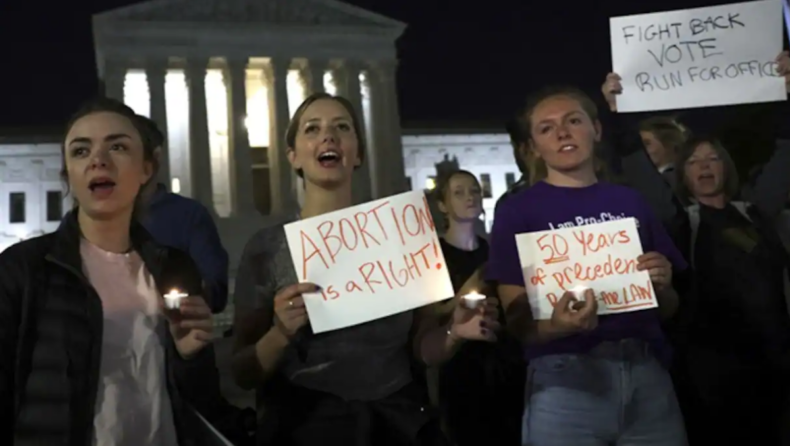
The federal government would protect women traveling for abortions, according to US President Joe Biden. Millions of US women lost their indigenous right to abortion after the Supreme Court capsized its Roe v . Wade decision in June.
The ruling has made it possible for individual countries to outlaw the practice. They’ve developed into frontal lines in the struggle to defend or abolish abortion services on a local level.
Google also claims that it’s taking action to exclude information from user`s location history that may be used to discipline people for visiting US abortion installations.
Women with restrictive bans on abortion may travel across state borders where the operation is still permitted.
During a virtual conference with Popular state governors, Mr. Biden stated that he allowed certain US countries may try to arrest women who cross state boundaries to gain abortion.
“People presumably do not suppose that will be. But it will take place,” he said.
In places where abortion is outlawed, the chairman stated that the government would make sure women had access to medicines that produced abortions.
However, if states feel that the federal government ” is designedly seeking to lessen and undermine their laws,” a federal government action might spark further legal challenges that could end up before the Supreme Court, Dr. Matthew Wilson of Southern Methodist University told the BBC.
Shockwaves have been felt across the US as a result of Roe v. Wade being overturned
While allowing for legislative limits and proscriptions in the alternate and third trimesters, the Supreme Court’s decision ensures that pregnant women have the right to abortion during the first three months of their gestation.
Since the court’s ruling, access to abortion has formerly been oppressively confined or banned in thirteen countries.
According to Mr. Biden, only a Democratic victory in the mid-term elections will give Congress the authority to reinstate federal abortion rights; after November, this will happen one way or another.
Google says that it’s taking way to remove information on US abortion installations from druggies’ position histories
There are now worries in jurisdictions with abortion restrictions. Authorities may try to acquire the hunt history and geolocation information on cell phones. Phones belonging to people who are considering revocation.
In light of this, Google has claimed that it would begin deleting data in the forthcoming weeks. When its systems detects a visit to an abortion clinic, counselling installation, domestic violence sanctum, or other establishments that offer” especially particular” services.
Soon after visiting a sensitive place, entries in a stoner’s position history will be deleted.
What has led to the capsizing of Roe v. Wade?
The Mississippi state law proscribing abortion beyond 15 weeks has won support from the Supreme Court.
As a result, millions of US women no longer have the indigenous right to have an abortion. Now, specific states might outlaw the practice formerly more. It’s anticipated that half of the US states will legislate fresh limitations or proscriptions.
Thirteen states have formerly passed so- called detector legislation. It will make abortion illegal as soon as the Supreme Court rules. Others will nearly clearly put fresh restrictions right down.
Six of the Supreme Court’s nine judges are chosen by Democratic chairpersons. There are nine total.
In May 2022, a draft ruling by Judge Samuel Alito, one of these, are released. It states that the Roe v. Wade decision is” egregiously incorrect.”
What abortion restrictions have previously been put in place?
Indeed, before the most recent decision by the US Supreme Court pro-life activists had begun to gain ground.
The legislation proscribing the use of government backing for abortion outside of situations when it’s absolutely necessary to save a woman’s life was affirmed by the court in 1980.
After that, in 1989, it came legal for countries to ban abortion performed in state installations or by state staff.
The loftiest court’s decision in Planned Parenthood v. Casey in 1992 had the most influence. The states might ban abortion indeed during the first trimester if they had non-medical apologies.
As a result, there are formerly limitations in place in numerous states. Similar as those taking youthful pregnant women to consult their parents or a judge before choosing to have an abortion.
There are already waiting periods in place in other states between a woman’s initial visit to an abortion facility and the operation itself.
Because of this, numerous women now have to travel further for abortion. Frequently across state lines and pay further for them.













